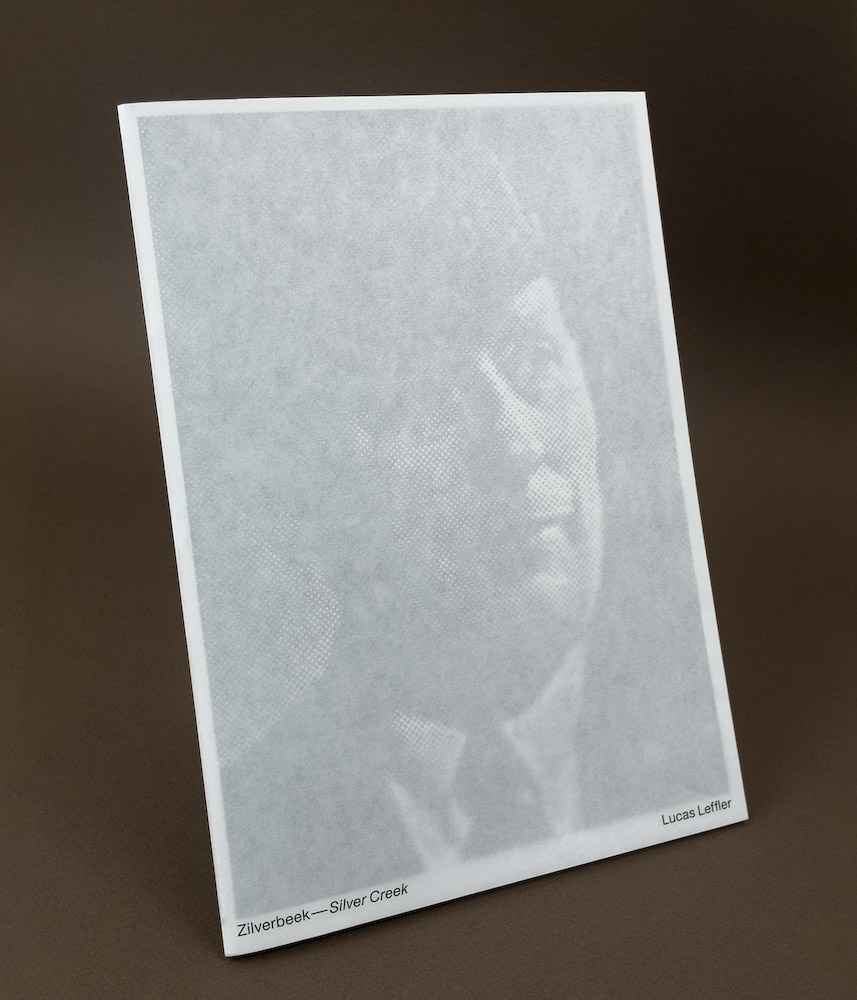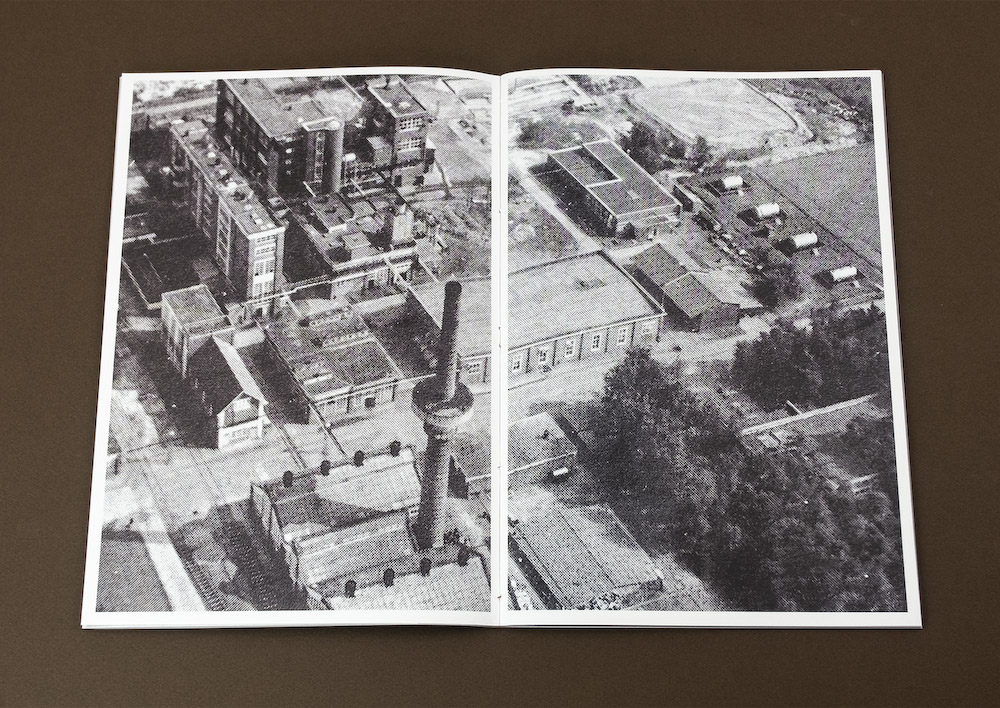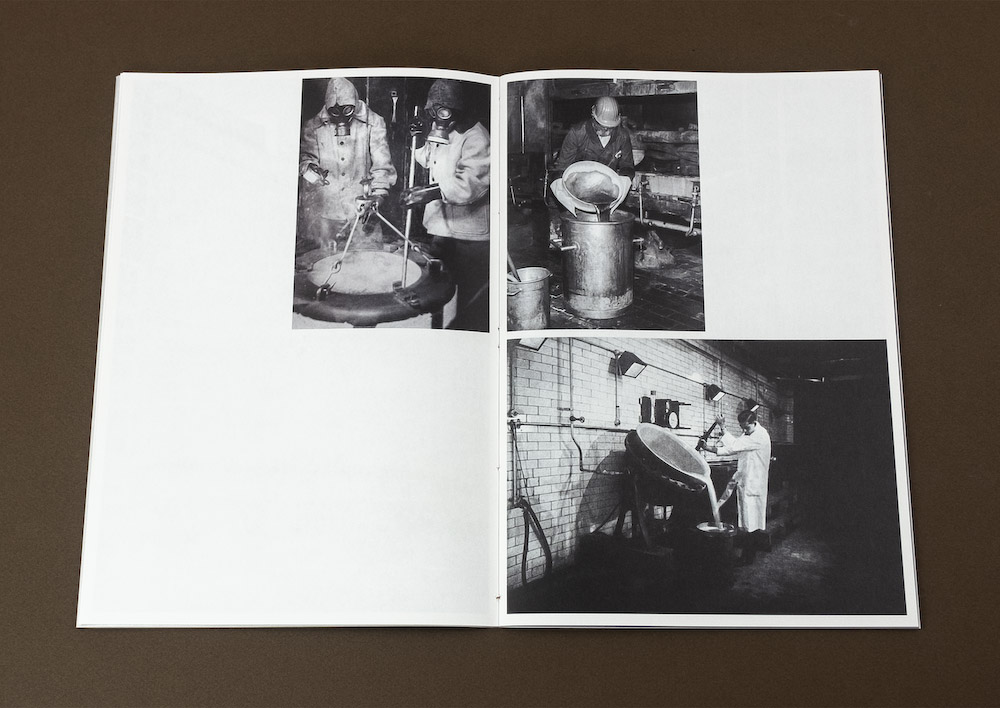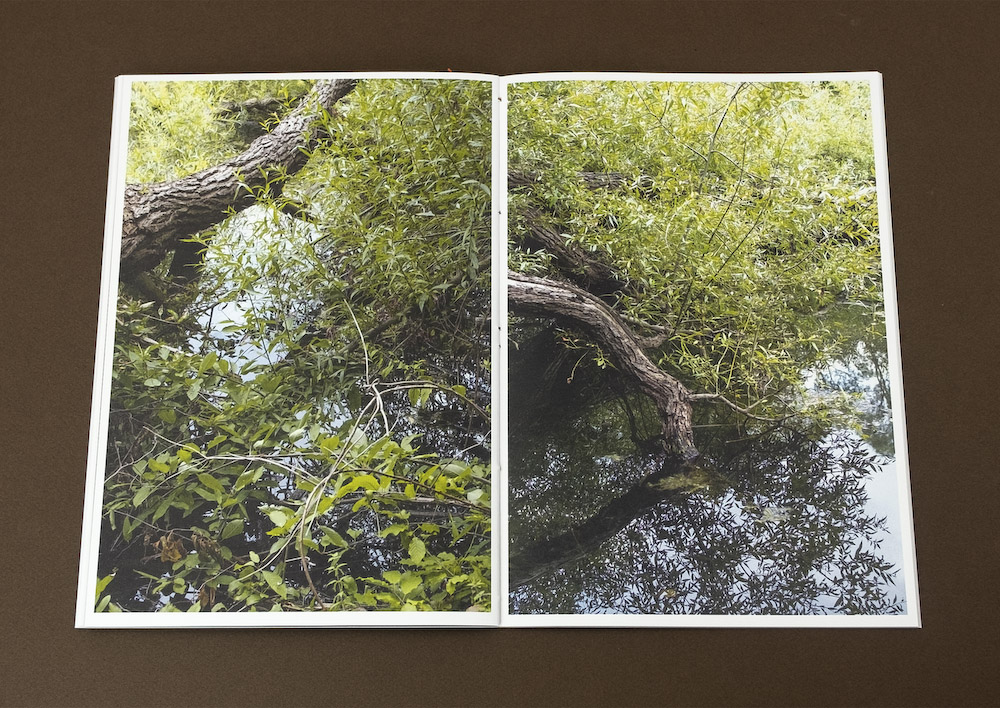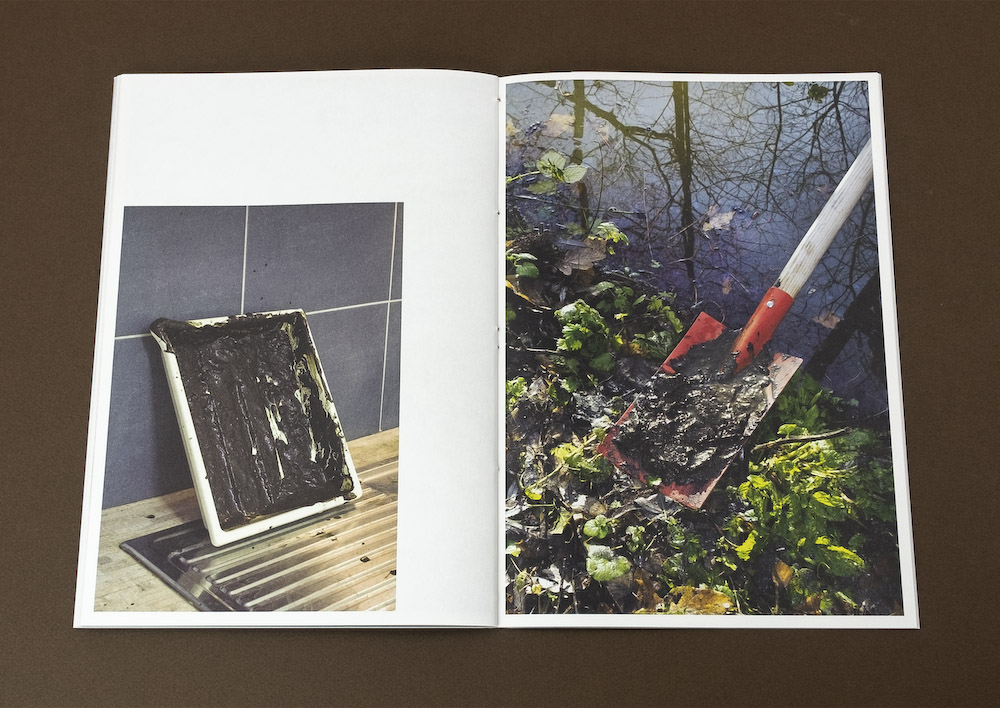Zilverbeek
Since the 1920s the Belgian factory Gevaert accidentally disposed tons of silver as a by-product of the production of photographic film. This outflow ended up in the Grensbeek (Border Creek) that separated the municipalities of Berchem and Mortsel. For its sludge coloured black by the silver, the creek was popularly called Zwarte gracht (Black Ditch) or Zilverbeek (Silver Creek).
The myth starts in 1927 when a tool maker working at the factory realised the kind of fortune the factory was washing away on a daily basis. The man invented a system to recover the silver from the sludge in the creek. He secretly drained the stream, and transported the dried sludge to a local metallurgical plant where the silver was extracted. The man recovered up to half a ton of silver a year, more than enough for a generous salary.
This story fascinated Lucas Leffler, who turned himself into a researcher. He found archive material, newspaper clippings and historical documents, and photographed the factory and the creek. And then, finally, he took mud from the bottom of the Zilverbeek, trying to find traces of silver, just like the pioneer before him. He finally used the mud to make “mud prints” by means of a screen-printing technique, of which a reproduction has been added as a poster in this publication.
| Photographer(s): | Text: |
| Lucas Leffler | Lucas Leffler, Carel Fransen |
| Format: | Pages: |
| 20 × 28,6 cm | 36 |
| Design: | Images: |
| Carel Fransen | 33 |
| Publisher: | Binding: |
| The Eriskay Connection | Self-cover cahier |
| Printer: | Printing: |
| Wilco Printing | Offset |
| Date: | Edition: |
| September, 2019 | 600 |
| Place: | |
| Belgium |





